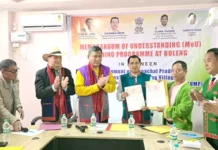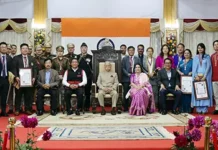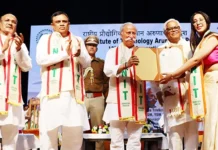NEW DELHI, 6 Apr: A group of health experts and patient advocates has highlighted the need for early diagnosis, preventive healthcare, and stronger policy interventions to combat rising cases of non-communicable diseases while underlining the role of media in bridging the information gap.
A media roundtable convened last week by the Resource Group for Education and Advocacy for Community Health (REACH) recognised the increasing burden of non-communicable diseases (NCD) and media’s pivotal role in improving understanding of public health.
REACH deputy director Anupama Srinivasan highlighted the group’s work with the media to improve the quality and frequency of reporting on NCDs and tuberculosis, emphasising media’s responsibility in shaping public discourse and fostering informed communities.
“The NCD response is relatively young and the information gap must be bridged. REACH’s commitment is to provide an impetus to data-driven and evidence-based reporting about non-communicable diseases,” she said.
In the first session of the roundtable, Dr Beena Bansal, senior endocrinologist and director-founder of Door to Care, highlighted the pressing need for early diagnosis, preventive healthcare, and stronger policy interventions.
Stressing the media’s role as a crucial bridge in fighting NCDs, she said, “In today’s digital age, media is one of the most important avenues to put an issue at the centre stage and reach the common people. Hence, non-communicable diseases must become a media priority for it to reach policymakers.”
Kathak expert and cancer survivor Alaknanda Das shared a compelling personal account of living with an NCD, shedding light on the struggles of navigating healthcare systems and accessing essential treatment.
Highlighting the importance of people-centred reporting that amplifies lived experiences and strengthens advocacy efforts, she said, “I was incredibly lucky to be diagnosed during the initial stages because I had the awareness and immediately visited a medical expert for diagnosis.”
“However, most people lack awareness. In such a scenario, various media channels, particularly social media, become critical as a source of information,” she said.
Dr Aqsa Shaikh, a professor of community medicine, addressed the intersection of healthcare access and marginalised identities.
Emphasising the need for ethical and inclusive storytelling, she said, “Media reporting must be driven by courage and curiosity. All information shared by the media must be authentic, with multilayer verification, and lived experiences must be highlighted with compassion, vulnerability, and deep sensitivity.” (PTI)



